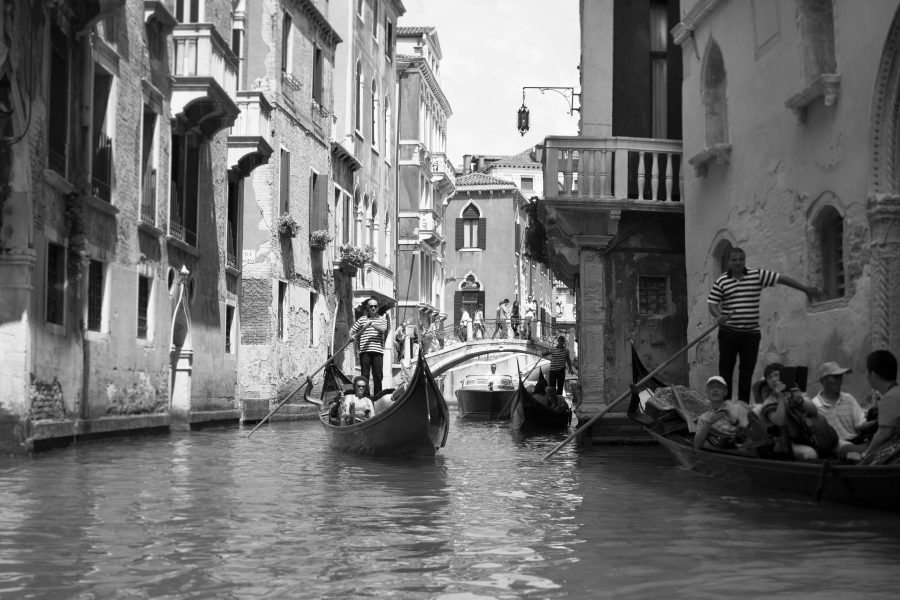Today is Venice’s birthday. According to legend, the city was founded exactly 1,598 years ago today. A small, independent trading state beyond the reach of any overbearing European power, it flourished for many centuries.
Young Venice not only fended off periodic threats from marauding Huns or Franks. The rulers of the fledgling republic explicitly repudiated the idea that anyone else might hold jurisdiction over them, taking the trouble to establish their own independent church of St Mark, separate from – and, in their eyes, equal to – that of St Peter in Rome.
After opting out of the Holy Roman Empire, the European Union of its day, Venice flourished.
It’s hard to imagine a less promising place to establish a successful society than on a mudbank off the north east coast of medieval Italy. There were few natural resources, little agricultural land and lots of malaria. Yet while the rest of Europe wallowed in Malthusian misery, something remarkable happened on the Rialto.
By 1050, what was once little more than a fishing village was home to 45,000 people — a large city by European standards of the time. By the mid-14th century, she had become a city of some 120,000.
Venice grew not only bigger, but richer. Almost alone in Europe between the end of the Roman order and the emergence of the Dutch republic in the 16th century, Venice achieved both an increase in population and a sustained increase in income per person. She was, in John Julius Norwich’s phrase, “the richest and most prosperous commercial centre of the civilised world”.
Venice grew rich thanks to the gains from comparative advantage. Her merchants specialised and exchanged in a way few others in Europe were allowed to.
Venice was capitalist while much of the rest of Europe was feudal. She developed a commenda contract system – think of it as a precursor to the idea of the joint stock company, which enabled entrepreneurs to invest capital on long voyages, with limited liabilities and qualtifiable risks.
Until the 14th century at least, she was open to free exchange, with fewer of the restrictive practices that were commonplace across much of medieval Europe. In the early days, rather than impose restrictive practices, her government acted to end protectionist monopolies.
Of course, Venice today is little more than a museum. Sixteen centuries after she got going, she is noted for what she was, rather than for what it is she does today.
If Venice’s history teaches us how small, independent states can prosper on their own, her past also warns us of what can go wrong.
In 1797, an army of Franks (this time led by Napoleon) eventually crossed the lagoon, snuffing out the Serene Republic. Yet even before the formal fall, Venice had ceased to be the kind of free market, open economy that she once was.
Trade had become increasingly regulated. There were rules stipulating not just what could be produced, but how.
Her fleet of galleys was nationalised, as were many industries. She had, you might say, an industrial policy — and as is so often in the nature of these things, thereby less and less industry. Various vested interests imposed all kinds of restrictive practices on who could buy, sell and manufacture – and on what terms.
A class of what we in Britain today might call “quangocrats” learned that they could earn a living off the public purse, rather than by producing anything. Political power was exercised in the interest of rent seekers. Innovation and wealth creation moved elsewhere.
Being independent, Venice shows us, is not enough. For any independent trading state, in any age, being beyond the reach of a wealth-sapping, innovation-destroying autocratic power block in Europe is only a start. Prosperity also depends on having an economy open to innovation, ideas and entrepreneurs. Venice’s birthday is a good day to reflect on that.








